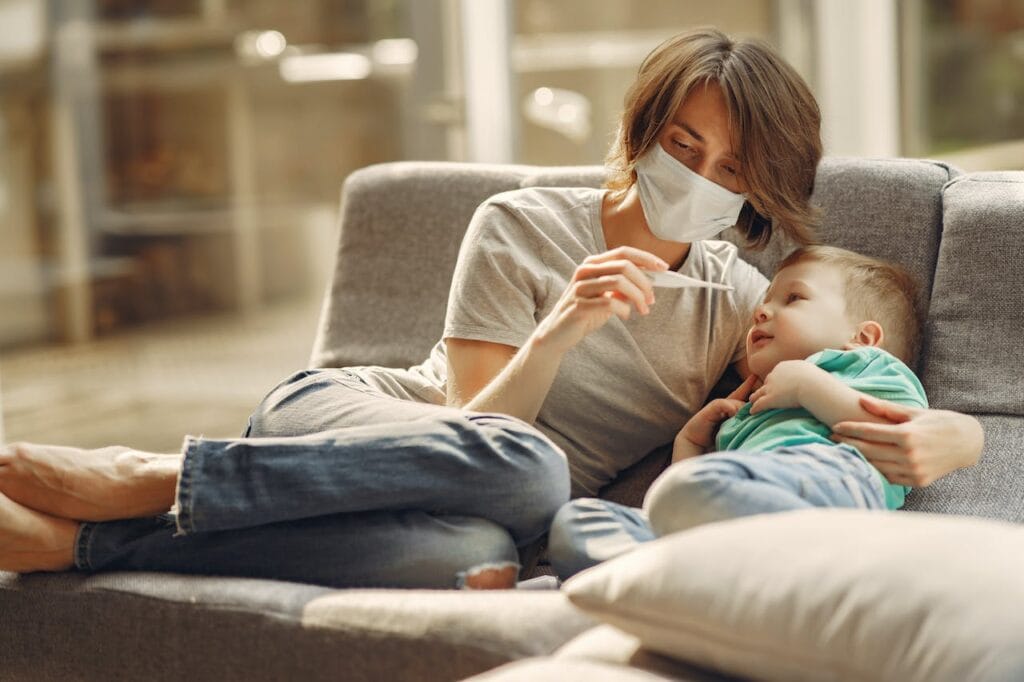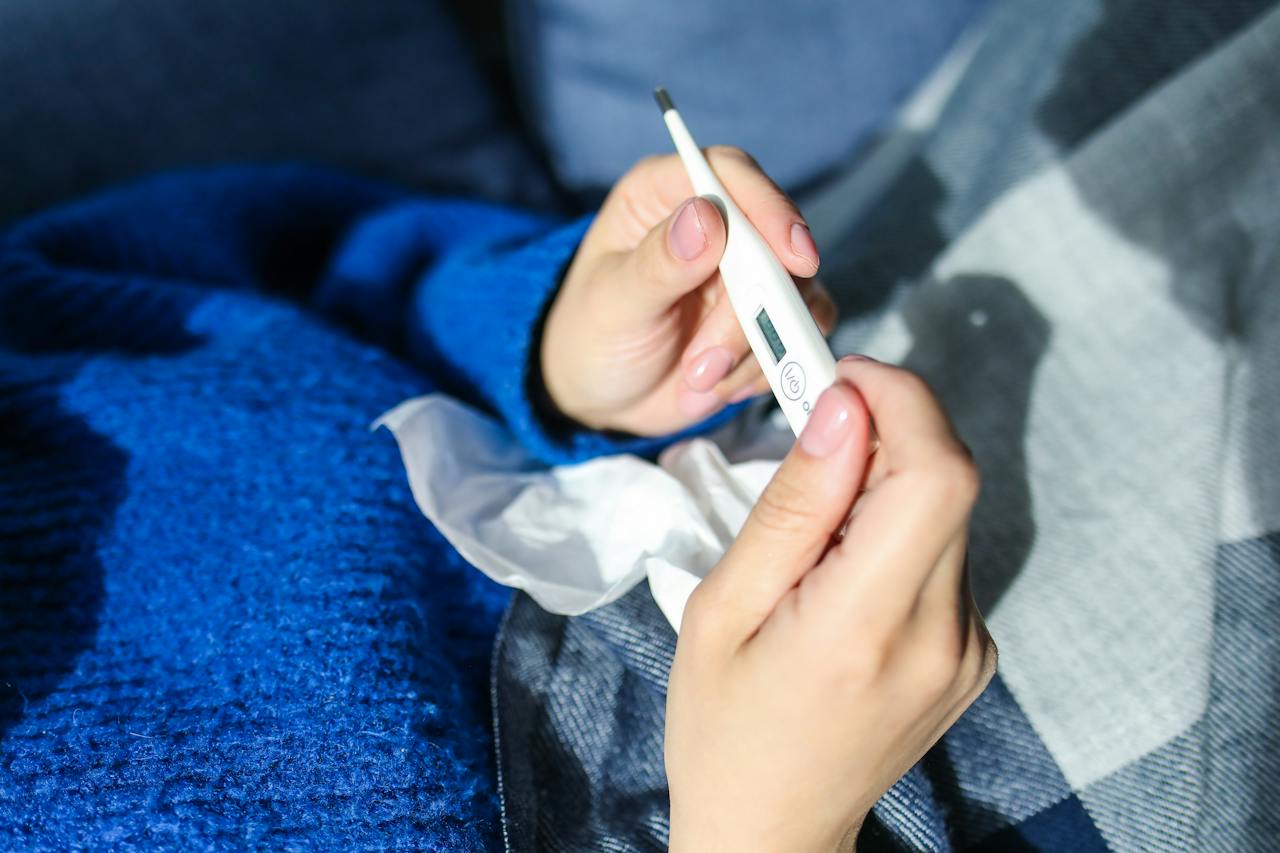It is believed that a high fever can be brought down by rubbing the skin with medical alcohol or vodka. We decided to check whether the use of this folk method is justified.
Advice on wiping a patient with a high fever with alcohol-containing liquids, as well as instructions on how to do this correctly, can be found on many information And entertaining portals. They write about this and specialized resources about alcoholic products. Sometimes such recommendations are found even in near-medical websites. Parents are discussing on forums O children, is it worth it apply Such remedies for a child who is unwell. Sometimes instead of vodka or rubbing alcohol advise use vinegar.
Increased body temperature, or fever, is not a disease, but a normal reaction of the body to infection, helping it cope with pathogens. There is no strict consensus among doctors about what temperature is considered a fever: for example, Harvard Medical School calls it 38 °C or higher, and National Health Service Great Britain (NHS) - at 37.8 °C. Specialists Department of Health In Moscow, any temperature above 37 °C is called a fever, but there is no need to panic because of the figure of 37.1 °C. "Verified" already wrote that 36.6 °C is considered in many countries to be the absolute norm is erroneous - judging by existing research, the range of normal temperatures in a healthy person is much wider.
In most cases, fever is not dangerous and does not require specific treatment, and body temperature below 42 °C does not lead to irreversible consequences. The same Moscow Department of Health advises lowering the temperature in adults and children over three months old only if it has reached 39 °C. Similar recommendations give specialists from the authoritative research Mayo Clinic (USA). If children under two years of age have a fever, you should immediately contact a doctor who can give advice. Also see a specialist costs Older patients should also be contacted if the thermometer shows above 40 °C or the fever is accompanied by loss of consciousness, severe pain in any part of the body, swelling and inflammation, or some other symptoms.
Experts at the Mayo Clinic recommend using acetaminophen and ibuprofen to reduce fever, and aspirin for adults. The large American academic Cleveland Clinic, in addition to taking antipyretics, offers A few more ways to combat fever: get more rest, drink plenty of fluids, dress in warm, comfortable clothes, but don’t wrap yourself up and don’t overheat. You can also, on the contrary, cool down slightly, for example, using cool compresses or a shower at room temperature.

It is for cooling that wiping with medical alcohol is used. This is the effect provides due to evaporation from the skin, as if blowing it with the wind. However, this effect is very short-lived and lasts only one or two minutes. However, such rapid and sudden cooling can cause chills, which, in turn, will give the body a signal about the need to produce additional heat, that is, an increase in temperature. For rubbing, it is better to use warm water - it evaporates slower alcohol, and the patient's skin cools gradually. “Verified” was unable to find any recommendations for using alcohol rubs to combat fever on any reputable medical resources. Some specialists (for example, from Medical school Stanford University and Hospital Johns Hopkins University) directly indicate that alcohol should not be used in this way to treat fever, especially when it comes to children.
Alcohol is absorbed through the skin, and when it evaporates, it can also be inhaled - all this can lead to alcohol poisoning. Known caseswhen babies fell into a coma after parents’ attempts to bring down their temperature with alcohol rubdowns or compresses. In adults, apparently, such severe consequences of this procedure are not observed. Although the compilers of the authoritative Merck medical manual (better known as the MSD manual outside the US and Canada) notethat absorbed alcohol also has a negative effect on the adult body. The short duration of the surface cooling effect also makes this product simply ineffective.
It is worth noting that all cases of severe poisoning of children as a result of wraps or rubdowns found by “Verified” occurred with the use of medical alcoholcontaining isopropanol. However, it is often used ethanol, as in alcoholic beverages - in particular, in vodka, which is sometimes used for rubbing during fever due to the lack of medical alcohol (for example, in Russia its free sale prohibited). Eat grounds believe that ethyl alcohol can also have a toxic effect on the body, especially in children.

In addition, some dermatologists have expressed concerns that ethyl, And isopropyl Alcohols, even in cosmetics, can lead to dryness and irritation of the skin, and with frequent use, they can damage its protective barrier. Any ethyl alcohol is, in fact, an aqueous solution, because the so-called absolute alcohol (close to 100 percent concentration) is extremely hygroscopic (that is, able to absorb water vapor from the air). Usually it concentration in the form of a medicine - from 70% to 90%, in vodka - 40%, although this figure may vary both up and down depending on the manufacturer. Isopropanol is more stable in high concentrations, however, if we are talking about medical alcohol, then this is also a solution - usually about 70%. In any case, this is much more than in the cosmetics industry. This means that such a folk remedy can cause skin irritation and lead to even greater discomfort for the patient.
As for vinegar, which is sometimes recommended as an alternative, no reputable medical organization recommends using it to reduce fever. Because boiling point vinegar, which is usually sold in grocery stores, is close to the boiling point of water, their evaporation rate is also approximately the same. Compared to alcohol, vinegar is much less dangerous - after sudden cooling it does not cause an increase in temperature and cannot lead to alcohol poisoning. However, if you wipe your skin or make compresses with a vinegar solution that is too concentrated, you can get chemical damage. burns. At the same time, “Verified” was unable to find scientific studies that would confirm that a vinegar solution for wiping is more effective in fighting fever than plain water.
Thus, moderate physical cooling, for example through rubbing, is one of the means of combating high fever. However, alcohol is not very suitable for this - it cools the surface of the skin quite quickly, but the effect lasts only a couple of minutes and can provoke an even greater increase in temperature. In addition, alcohol can dry out the skin and only worsen discomfort. Finally, this remedy is simply dangerous for the health of children - there are cases where infants fell into a coma after such treatment methods due to alcohol poisoning.
Cover photo: pexels.com
Read on the topic:
- Mayo Clinic. Fever treatment: Quick guide to treating a fever
- Is it true that the body temperature of a healthy person should be 36.6 °C?
- Is it true that Fahrenheit mistook his sick wife's body temperature for 100 degrees?
If you find a spelling or grammatical error, please let us know by highlighting the error text and clicking Ctrl+Enter.






